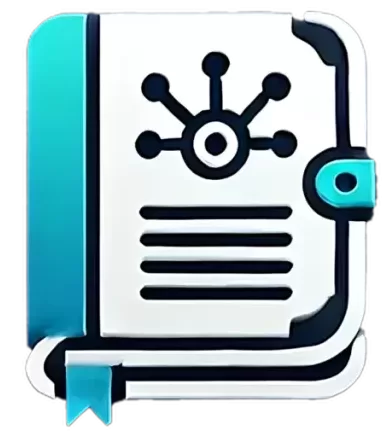What to Write in a Journal for Mental Health: 10 Prompts That Actually Help
What to write in a journal for mental health isn’t always obvious. Most people think journaling is about writing more. It’s not.
Journaling is about noticing.
Noticing your thoughts.
Noticing your patterns.
Noticing what helps — and what doesn’t.
If you’ve ever opened a journal and stared at the blank page with zero idea what to write… you’re not alone. The key isn’t to write more, it’s to write what matters.
That’s where mental health journaling comes in. With the right prompts, you can turn your journal into a mirror — one that helps you regulate emotions, spot recurring thoughts, and create just a little more clarity in your day.
Why Mental Health Journaling Works
We don’t always know how we feel — until we see it written down. Journaling helps in three key ways:
1. It calms the noise
Your mind races because thoughts are scattered. Journaling collects them into one place. That alone is a win.
2. It reveals patterns
Ever notice how stress shows up on Sundays? Or how your mood dips after certain meetings? You will — if you’re writing it down.
3. It builds perspective
What felt huge last week may feel manageable today. Reflection creates distance — and distance creates wisdom.

What to Write in a Journal for Mental Health: 10 Prompts That Actually Help
Each prompt below is designed to do something: calm you down, help you process, or help you notice something that usually goes unnoticed.
Use them as-is, or let them evolve as you write.
When you’re overwhelmed:
1. “Right now, my mind feels like…”
Describe the shape of your thoughts. Are they racing? Tangled? Slow and heavy? Naming the mental weather can make it easier to sit with.
2. “If I could speak to my anxious self in this moment, I’d say…”
What would a calm, grounded version of you say right now? Write from that voice — even if you don’t believe it yet.
When you’re trying to process emotions:
3. “The part of today I keep replaying is… and I think it’s because…”
What moment keeps looping in your mind? Explore it without trying to fix it. Understanding why it sticks often helps it loosen.
4. “I notice a pattern when I feel like this — it usually starts with…”
Emotions often have footprints. Look for the early signs — and the common triggers — so you can navigate them better next time.
When you’re tracking your mood:
5. “Today, I felt most like myself when…”
Identify the moment you felt most aligned — with who you are, or who you want to be. That’s a signpost. Follow it.
6. “One thing that noticeably lifted my mood today was…”
Was it a person, a place, an activity? Write it down. These are your hidden tools. You’ll want to remember them on the hard days.
When you want to feel more grounded:
7. “Three small wins I had today (even if they feel silly):”
Tiny wins are still wins. Celebrate making your bed, sending the email, or just getting through the day. This builds emotional momentum.
8. “One thing I’m proud of today — and what it says about me:”
Pride isn’t arrogance. It’s recognition. Find one thing, however small, and connect it to a quality in you worth noticing.
When you’re stuck or unsure:
9. “Something I’ve been avoiding lately — and what I might need to face it:”
Avoidance has a cost. Writing it down doesn’t mean you’ll act on it today, but it starts the process of reclaiming agency.
10. “If someone I love were feeling what I’m feeling right now, I’d tell them…”
This is a mirror. Speak gently. Your words to them are often the words you need to hear most.
How to Build a Mental Health Journaling Habit
A blank page isn’t the enemy. Inconsistent effort is.
The key to journaling — like any habit — is to make it easy enough to do, even on your worst days.
As James Clear, author of Atomic Habits, puts it:
“You do not rise to the level of your goals. You fall to the level of your systems.”
Your journal doesn’t need to be deep or perfect every time. It just needs to be there — open and waiting.
Here’s how to build a journaling habit that sticks:
- Anchor it to a daily cue (like right after brushing your teeth or before bed).
- Lower the bar — some days, one sentence is enough.
- Review weekly — that’s where you start to see your own story forming.
Try Journaling With Less Pressure, More Clarity
Most journaling apps give you a blank page. Lume gives you a starting point.
With daily prompts, mood-aware suggestions, and reflections that actually talk back, Lume turns mental health journaling into a conversation. It’s built to make reflection easier — and to help you feel more in control, one entry at a time.







